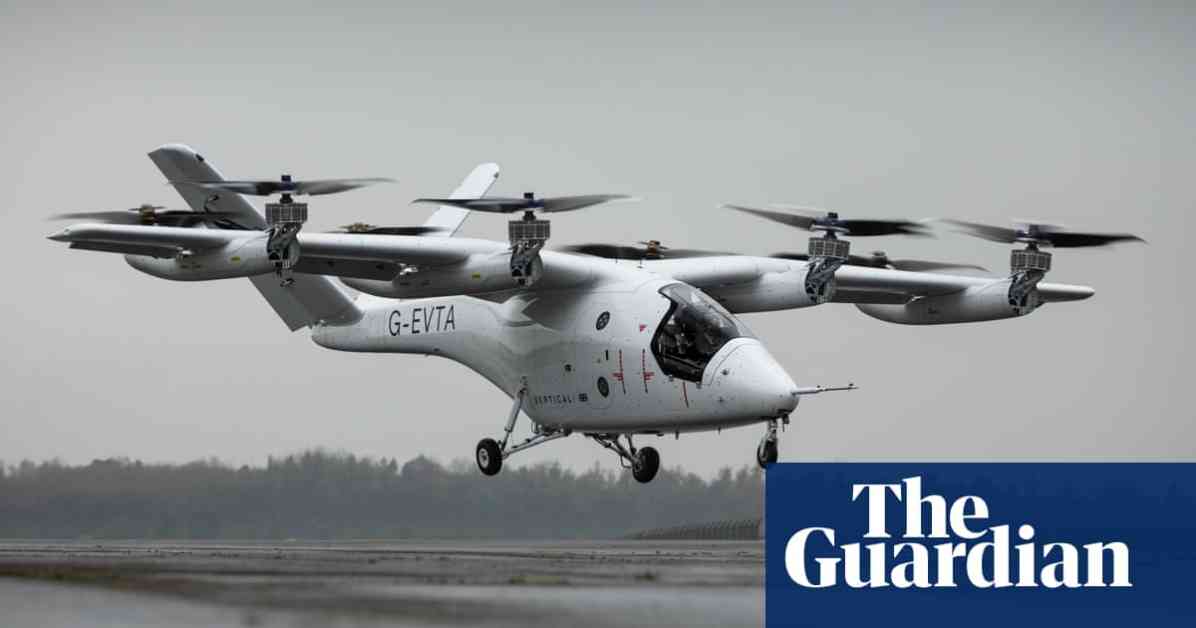On a gray November day in the Cotswolds, England, the VX4 – a mix of a plane and a helicopter – took off from an airport runway, hovered a bit off the ground, and landed. Even though it didn’t reach a high altitude, it was a significant moment for its British owner, Vertical Aerospace. The company, which has received substantial support from UK taxpayers, is facing financial difficulties.
Vertical Aerospace faced a setback last August when an unmanned version of their aircraft crashed into the runway due to a rotor blade failure caused by glue. Fortunately, no one was hurt, but this incident, along with the financial strain, highlights the challenges of bringing flying taxis to reality after decades of attempts. The company recently announced a two-year delay in obtaining UK regulatory approval to transport passengers, pushing the timeline to 2028.
Vertical Aerospace, founded by Stephen Fitzpatrick in 2016, initially aimed to have their aircraft in service by 2025. However, delays due to cautious regulators and suppliers have hindered their progress. Despite the setbacks, the company has chosen the UK as the location for a factory to manufacture 200 aircraft annually.
Flying taxi startups, also known as electric vertical takeoff and landing (Evtol) aircraft, have been making strides in the industry. Companies like Joby Aviation, Archer Aviation, and Volocopter have raised significant funds and developed flying prototypes. Major plane manufacturers like Airbus, Boeing, and Embraer have also entered the race through subsidiaries.
Although Vertical Aerospace went public in 2021 with a valuation of $2.2bn, their share price has plummeted by 95% since the pandemic, now valued at $110m. Rising interest rates and development delays have caused hesitation among investors. The industry experienced a bubble, leading to companies like Lilium filing for bankruptcy and others seeking buyers to stay afloat.
Vertical Aerospace is in talks with American investor Jason Mudrick to convert past loans into equity to inject cash into the company. This move could potentially open doors for other investors like Virgin Atlantic, American Airlines, Microsoft, and Honeywell to make new equity investments. Despite facing financial challenges, the company remains optimistic about securing capital and proving their technology works.
In a challenging funding environment with a shakeout in the industry, Vertical Aerospace aims to emerge as one of the winners. With the potential to revolutionize urban transportation, flying taxis hold promise for the future, but overcoming financial hurdles and regulatory obstacles remains a key focus for companies in this space.
